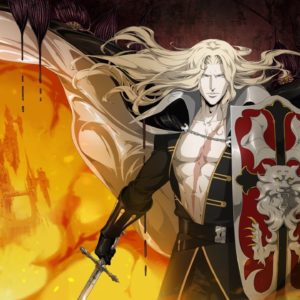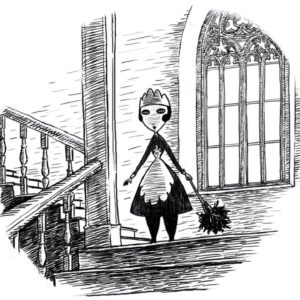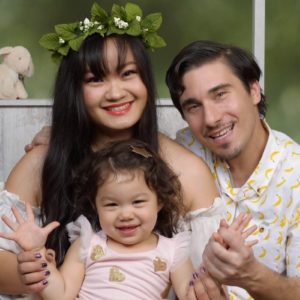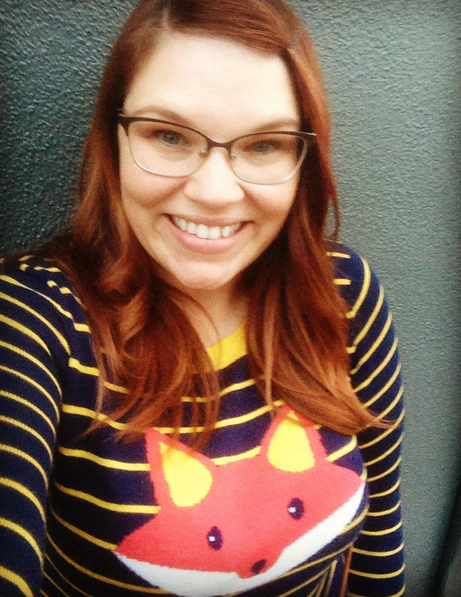
You can tell by talking with her that Amanda McCann is good at her job. ‘Cause it feels good to talk with her! And in a big way, Amanda’s job involves a lot of making people feel good: about the work they’re doing; the show they’re making; and themselves. As Line Producer on Costume Quest, Amanda is a leader among the unspoken heroes of any animated TV show: the production crew. She gives awesome insight here, for anyone interested in producing, voice acting, writing… actually, as it turns out, Amanda’s good at A LOT of jobs.
Did you always want to work in animation?
I wanted to be an actress! Starting in high school, I studied improv comedy at ComedySportz. I joined their college team and eventually their main stage. After graduating with a degree in Theater, I performed and taught high schoolers there. And I was working at a restaurant – as you do in LA. Finally I had a heart to heart with myself, like “Do I really want to act?” It’s so competitive, and like having a job interview every day. I had friends 10 years older still working it, working hard at it. And I didn’t know if it was for me, because I value stability – a paycheck, insurance, benefits. It was hard to picture myself not having that.
The grips of an existential crisis. What’d you do?
I asked myself, if not acting, what do I want to do? What makes me happy? And that’s cartoons! I’ve always loved cartoons. And yes, as an actor, ideally I wanted to do voice over. But I knew how competitive that was. I also had a writing background – I wrote for The Simpsons comic books for a while – but writing: same deal. So I was looking for the way that people got into animation when they weren’t artists and didn’t have an “in” as an actor or writer – and I discovered production. This whole other side to cartoon-making, and the path to producing. That’s where I wanted to be: making cartoons for a living.
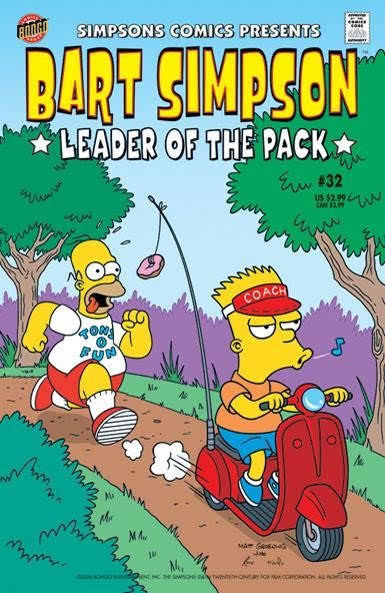
That’s awesome. So you found a job in the industry?
Yup, about 9 years ago I put it out into the universe. I asked if anyone had a connection to an animation studio, and luckily a family friend did. I got a job as a receptionist at WildBrain; at the time they were moving studios from San Francisco to LA. Yo Gabba Gabba! for Nickelodeon was the big property they owned, and they were working on a number of projects for Mattel, as well as producing an animated podcast, The Ricky Gervais Show, for HBO. So I started there and made it very known that I was interested in moving up—I was a bit older than most receptionists (laughs). I put that out there, and within 2 months I was a PA on The Ricky Gervais Show. I’ve been bouncing from job to job in production ever since.
What a journey! And animation was the right fit like you thought?
It immediately felt like a good fit. Animation people are my people. The animation and comedy worlds are very similar and there’s a lot of crossover, so it was a natural transition for me. I love being on a crew. Working with people, and artists – I admire artists so much, because I’m not one, at least in terms of drawing. So people with artistic talents are incredible to me – they’re like unicorns. And actually, by way of working in production, I’ve gotten to live my other dreams! I’ve been doing professional voice-over, for Costume Quest, The Loud House and others. I was just forced to join SAG-AFTRA. I booked enough jobs that I became a ‘must-join’! And I’ve gotten to write for animation too; I wrote a few episodes of Monster High for Mattel and an episode of Ask the Storybots for Jib Jab and Netflix.
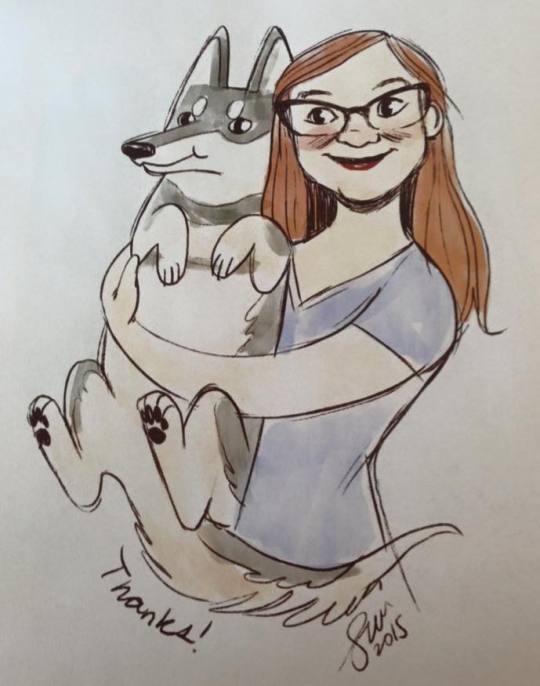
(Amanda and her pooch Dobby, by storyboard revisionist Serena Wu)
Wow – so ‘taking a day job’ brought you all these creative opportunities?
Yeah! Sort of through the backdoor, I was able to put it out there that I had these other talents, and get hired for them. I get to tackle it all, which I’ve always loved—being a renaissance woman. Especially since working in production is creative solutions, but it’s not exactly creative. It’s paperwork and hiring and pipelines and schedules and budgets. So being around the creative is really exciting for me, and then also being able to participate through VO and writing at certain points.
That’s amazing. So would your advice to people be, ‘just get in the door?’
Just be there! If you’re at the right place, you’re more likely to be there at the right time. To people looking to break into animation, I always say, “Take anything”. Any opportunity that comes your way, jump in and do your best. I was overqualified to be a receptionist, but I knew that was the step I had to take to launch my career in animation. I know people who started at Nickelodeon in the mailroom and became writers on Spongebob. Stuff like that happens all the time! It’s all about timing. But you also have to hustle in your own way. You have to make people aware of what your interests and goals are.
How do you recommend people put themselves out there? It’s really hard for a lot of people! Especially of the introverted variety.
It is! But I think just doing your best, working hard, and proving that you’re capable is huge. As well as treating everyone equally and with kindness, regardless of their position. You want to be the person that you would want to work with, and people will want to work with you! So start by focusing on the job at hand and executing it as well as you can.
At the same time, be vocal about your goals. There’s a finesse to it. You don’t walk around with a sign around your neck that says, “I actually want to be a writer”. Just when an opportunity arises, put yourself up for it. And it’s okay to ask people in the job you want out to lunch or coffee, to pick their brains! I find that people are pretty receptive when you put yourself out there.
The last thing that I always say: find your people. This is a big industry, and you can always find people you’ll gel with better. The people you gel with best will be the best advocates for you, propelling you forward. So if you feel unsupported where you are, then move, move on, keep going! I think people get stuck in a rut, or feel obligated to one place. But trust your instincts – if it doesn’t feel right then it’s not. If you move on, you might shine. I’ve seen that happen so many times, where someone makes a lateral move and finds their niche of support. When people become too complacent, I think it stifles them.
What was your path after WildBrain?
I’ve worked with 7 studios: WildBrain, Hasbro, Mattel, Oddbot, Jib Jab, Nickelodeon, and Frederator. Which is great because I have connections at all these places – and people move all the time, or companies get absorbed, so your connection at one studio might move to another. I’ve also been lucky to have pretty long stints at places – jobs that have lasted a lot longer than most production gigs do. Because being tied to a production, whenever the season ends, you’re done. The production crew, though, is the first on and the last off.
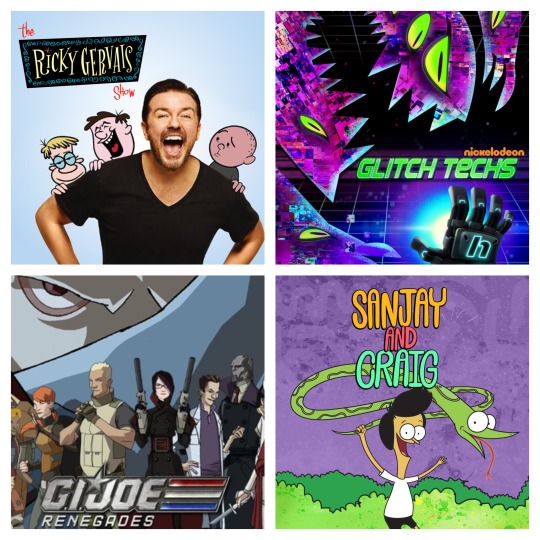
How about responsibilities in production – what’s different between being a line producer vs. a production manager, say?
It’s crazy, because every studio’s pipeline is different. Every production’s pipeline is different! But the biggest differences are in level of responsibility over the production overall. As a manager, you don’t have as much say over final decisions; whereas being a producer, you’re often giving the stamp of approval.
I once had it broken down really well for me: PA is day to day; coordinator is week to week; manager is month to month; producer is year to year. And that’s how the tasks are viewed. PAs do a lot of daily tasks: copying, scanning, stamping, filing. Coordinators do a lot of shipments that are over a week. Managers look at schedules ahead of time to plan out needs along the way. And producers lay it out as a whole, to see where start to finish lies. The roles blend, a lot of the time, especially manager and producer. The production crew adapts to the needs of each show.
What are the most important qualities of those who do well in production?
Communication skills. That sounds basic, but really – if artists were able to organize all of their stuff and communicate effectively to everybody, we wouldn’t have jobs!
Being personable – we’re the deadline keepers, the schedule pushers. It’s like trying to be the cool dungeon master. We have to pull things away from artists who just want to make them beautiful! So I like hiring people for production who have creative backgrounds, because I think they empathize better with artists. It is a lot to ask someone to produce something beautiful and artistic and creative within THIS strict timeline.
Taking initiative; I’m not a micro-manager. If I hire you and tell you the things I want you to take care of, I won’t check up on you—I’ll assume you’re doing your job. On top of that, people who collaborate. Voice concerns; pitch me solutions to problems. I’m looking down the road, so I can’t see everything on the day to day. I need people who take the initiative and tell me what’s up.
You have to be organized; basic, again, but crucial. We’re working on a bunch of episodes at all different stages: animatic, storyboard, designs, shipping. Your head will explode if you’re not a little OCD about how things are organized and prioritized – and labelled!
Asking questions is important: I’d rather you ask me than do it wrong and make things harder for you. There’s no shame in getting help and being mentored! But there’s also no shame in failing. I learn so much from messing up, because it’s like, “Welp! I don’t want to do that ever again.” And coming from the comedy world, especially improv, you fail a ton. I grew up learning how to fail, and I think it’s been critical in letting me progress and grow as a leader and person.
Do you still do improv and comedy?
I do! I’m still with ComedySportz, but I’m not as active. Mostly, I’m applying those improv skills to voice over. I’m auditioning a bunch, and I did some voices on Costume Quest. I was production manager on an upcoming Nickelodeon show, Glitchtechs, and I also have a voice in that when it comes out!
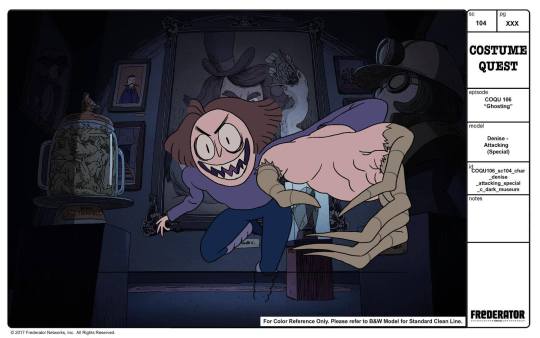
(Denise, one of Amanda’s voices on Costume Quest!)
That’s so cool. What’s your advice to people who want to get into VO?
Classes, classes, classes. You get to know your tool and what you’re capable of. There are resources online, some YouTube channels about VO. But classes are where you really grow, because like anything, it’s about repetition. It is very competitive, but I really believe that there’s a part for everyone.
What do you love most about Costume Quest?
I love the collaborative nature of this production. Frederator bought the series to make it, but its original visionary – Tasha Harris, who wrote the Double Fine game – isn’t involved. I’ve never worked on a show before where it wasn’t someone in particular’s baby. Instead, we’ve all adopted it as our baby. And really, we all get a say! As a line producer, generally I wouldn’t get to give comments on material: it’s all about paperwork, pipeline and budget. But the showrunners, Will McRobb and Bryan Caselli, have been so gracious in letting me give notes on storyboards and animatics. I go to every voice recording session and get to try my hand at that stuff. Partly because it’s a Frederator show – a little smaller crew, an independently-operating company – the show’s been able to give a lot of opportunities to talented, deserving people. For so many of the artists, this is their first show ever, and that’s just so cool.
And the show looks incredible. We have an amazing voice cast. Some of the most talented people, between the four kids and all of the adults we’ve peppered in. Of course we’re biased here, but we do think it’s going to be something that kids really enjoy, and hopefully adults too.
Plus: I’m a huge Halloween nerd. I always had homemade costumes as a kid because my dad is an artist. He would get really creative.
What was your favorite costume he made you?
One time I was Phantom of the Opera. None of the other kids knew who I was. But I knew.
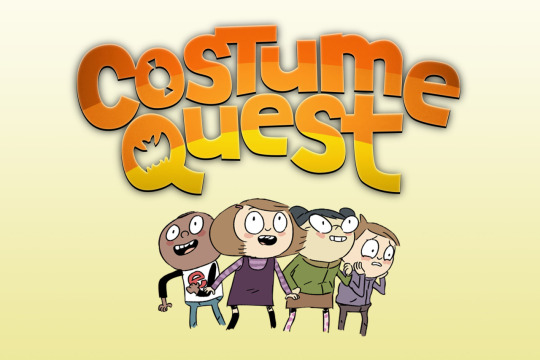
Do you have a favorite character from Costume Quest?
They’re all really great. But of the four kids, I always go back to Reynold. He’s the voice of reason, and the scaredy cat, which I could relate to as a little kid. I was always the youngest cousin, the one who’d be like, “Maybe we shouldn’t throw rocks at this window? Maybe? No? Ok”. So his sweet-natured cautiousness I relate to. But it’s a package deal, and his sister Wren too… I relate a lot to her determinedness and her no-nonsense attitude. That’s something I admire.
What are your favorite cartoons?
I was a Nickelodeon kid, so I grew up on all those series. Rocko’s Modern Life was one of my favorites. Also The Simpsons, The Critic, and Home Movies. For features, Little Mermaid was my jam – and Lilo & Stitch. And Ranma ½ is an anime that I love. Those are some favorites, but I have so many, it’s hard to keep track!
What are your biggest aspirations, or your biggest dream?
I would love to work in animation features someday. I have a ton of experience in TV, and just to see the other side of it – in voice over and producing – would be great. It’s not like a tomorrow thing, but if an opportunity came down the road, that’d be really cool.
Thanks for the interview Amanda! I’m so excited to see all of your creative paths unfurl. And can’t wait to hear your voice in the ‘toons! ❀
– Cooper

